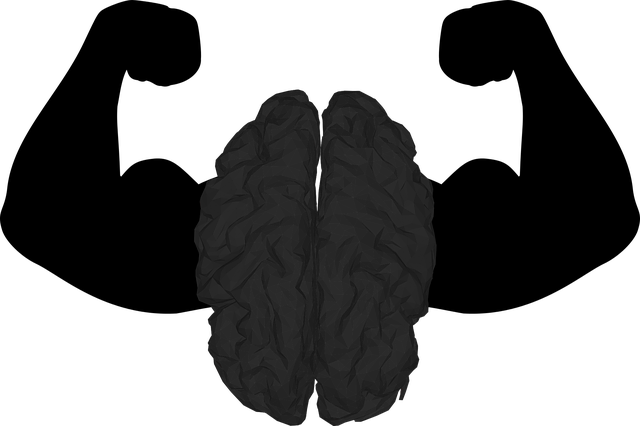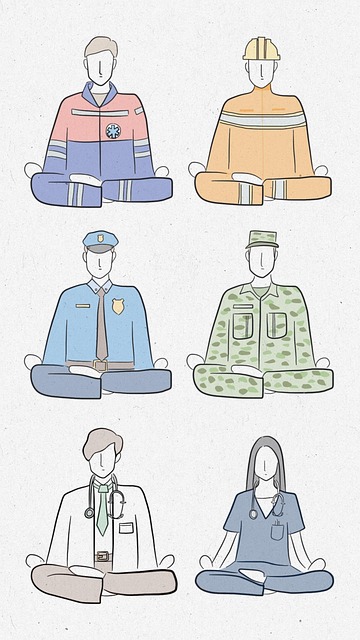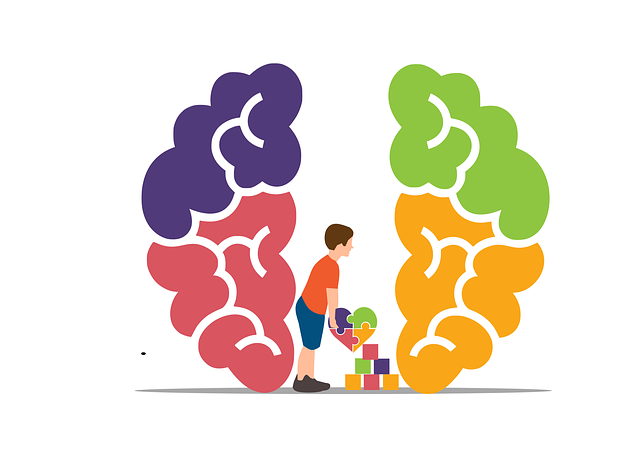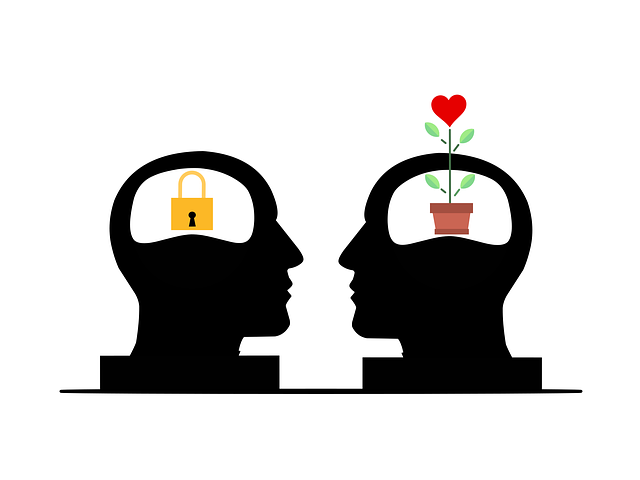Colorado Springs Anxiety Therapy emphasizes the power of social skills training to combat anxiety-related isolation. By teaching communication, empathy, and coping strategies tailored to individual needs, this holistic approach enhances mental well-being and self-esteem. Through culturally sensitive practices, SST equips individuals with tools to manage distressing emotions, build meaningful connections, and engage more comfortably in public settings, reducing the impact of anxiety on social interactions while destigmatizing mental health concerns within communities.
Social skills training is a powerful tool in supporting individuals with mental health conditions, particularly anxiety. This article explores the deep connection between social skills and mental wellness, focusing on how Colorado Springs Anxiety Therapy approaches building social competence. We delve into specific challenges faced by those with anxiety in social situations, practical strategies to enhance communication and relationships, and the long-term benefits of this training. Understanding these aspects can revolutionize support for mental health management.
- Understanding the Connection Between Social Skills and Mental Health
- Identifying Challenges in Social Interactions for Individuals with Anxiety
- The Role of Colorado Springs Anxiety Therapy in Building Social Competence
- Practical Strategies for Enhancing Communication and Relationship Building
- Real-World Application and Long-Term Benefits of Social Skills Training
Understanding the Connection Between Social Skills and Mental Health

Social skills training is an integral part of addressing mental health conditions, particularly for those seeking Colorado Springs anxiety therapy. The connection between social skills and mental well-being is profound; effective communication, empathy, and interpersonal interactions play a crucial role in managing symptoms and improving quality of life. For individuals struggling with anxiety, depression, or other mental health challenges, lacking social support and feeling isolated can exacerbate their condition.
Building and enhancing social skills can lead to significant improvements in self-esteem and mood management. Through training, individuals learn to navigate social situations with confidence, reduce feelings of insecurity, and develop healthier relationships. Moreover, crisis intervention guidance incorporated into social skills training equips people with the tools to handle distressing emotions, preventing them from spiraling into more severe mental health crises.
Identifying Challenges in Social Interactions for Individuals with Anxiety

Individuals dealing with anxiety disorders often face unique challenges when it comes to social interactions. Anxiety can manifest as a persistent fear or avoidance of social situations, which significantly impacts one’s ability to connect and communicate with others. For instance, someone with social anxiety might struggle with initiating conversations, maintaining eye contact, or participating in group activities, leading to feelings of isolation and loneliness. These internalized fears often stem from negative experiences or an intense worry about being judged or embarrassing oneself—a common thread across various anxiety disorders.
In Colorado Springs Anxiety Therapy, cultural sensitivity plays a vital role in addressing these challenges. Therapists trained in cultural awareness can help individuals navigate social situations by exploring the root causes of their anxiety and developing coping strategies tailored to their unique backgrounds and experiences. By fostering mental wellness through personalized approaches, therapists enable clients to build confidence and engage more comfortably in public settings, ultimately contributing to improved mental health outcomes. Public awareness campaigns development could also play a role in destigmatizing these conditions, encouraging individuals to seek support and fostering a sense of community for those dealing with anxiety-related social challenges.
The Role of Colorado Springs Anxiety Therapy in Building Social Competence

Colorado Springs Anxiety Therapy takes a holistic approach to addressing mental health conditions, recognizing that social competence is a vital component of overall well-being. Through tailored interventions and evidence-based practices, our therapists help individuals overcome anxiety and other challenges that can isolate them from social interactions. We offer specialized programs designed to foster empathy building strategies, encourage meaningful connections, and develop effective communication skills.
In addition to individual therapy, Colorado Springs Anxiety Therapy promotes burnout prevention strategies for healthcare providers, ensuring they remain equipped to support their patients’ social needs. Our community outreach program implementation aims to break down barriers and create supportive environments where individuals can build resilience, cultivate friendships, and thrive in a social context.
Practical Strategies for Enhancing Communication and Relationship Building

In social skills training for mental health conditions, practical strategies are essential to foster meaningful communication and build relationships. At Colorado Springs Anxiety Therapy, professionals emphasize the importance of active listening as a foundational skill. By focusing on eye contact, paraphrasing, and asking open-ended questions, individuals can improve their ability to understand others and express themselves clearly. This enhances emotional connection and reduces misunderstandings, which are common challenges for those dealing with anxiety or other mental health issues.
Additionally, mental wellness journaling exercises and inner strength development techniques play a crucial role in this process. Journaling allows individuals to reflect on social interactions, identify areas of growth, and track their progress over time. Inner strength development helps build confidence and resilience, making it easier for people to engage in conversations and form connections. These practices, combined with guidance from therapists, empower clients to navigate social situations more effectively, ultimately improving overall mental wellness.
Real-World Application and Long-Term Benefits of Social Skills Training

Social Skills Training (SST) offers a practical and impactful approach to mental health treatment, especially for conditions like anxiety. When implemented in real-world settings, SST allows individuals to apply newly acquired skills in their daily lives. For instance, those seeking Colorado Springs Anxiety Therapy can benefit from role-playing and group interactions during therapy sessions, which prepare them for social situations that may trigger anxiety. This real-world application ensures that clients are equipped to handle challenging environments outside the therapeutic space.
The long-term benefits of SST extend beyond immediate improvements in mood management and emotional intelligence. It empowers individuals with enhanced self-confidence, improved relationship dynamics, and better coping strategies. By fostering cultural sensitivity in mental healthcare practice, SST can also help reduce stigma and promote a deeper understanding of diverse perspectives, leading to more inclusive and effective support for all clients, regardless of their background.
Social skills training is a powerful tool in the arsenal of mental health support, especially as offered by Colorado Springs Anxiety Therapy. By addressing specific challenges in social interactions, individuals with anxiety disorders can develop much-needed communication and relationship-building competencies. The practical strategies outlined in this article provide actionable steps towards enhancing social competence, ultimately leading to improved mental well-being. Through real-world applications, those who participate in such training can experience long-lasting benefits, fostering more fulfilling social connections and a higher quality of life.














